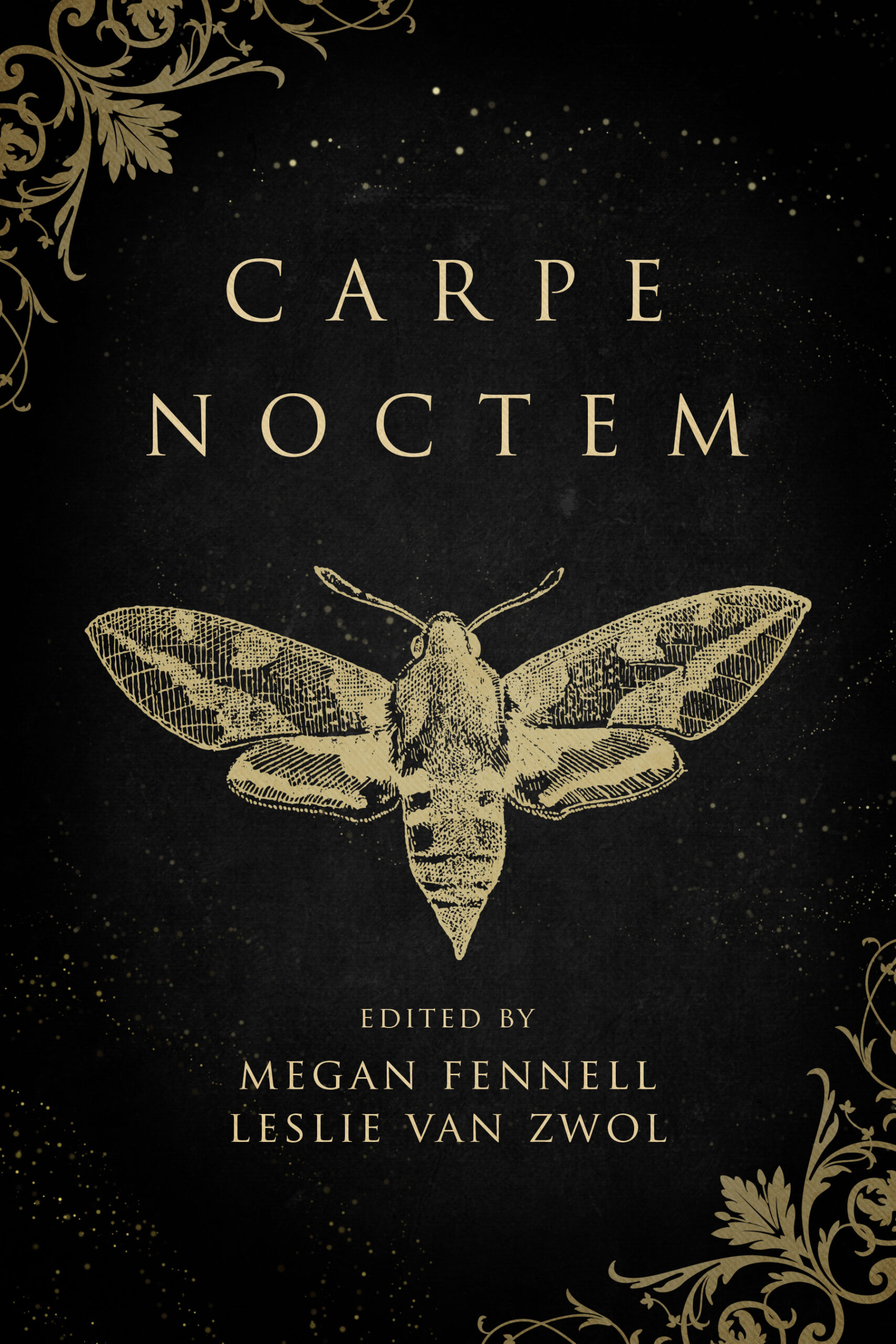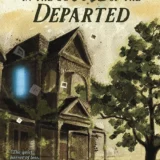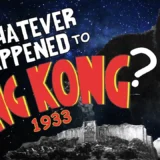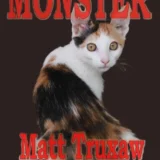
OBIR: Occasional Biased and Ignorant Reviews reflecting this reader’s opinion.

Carpe Noctem – edited by Megan Fennell and Leslie Van Zwol
Publisher: Tyche Books, Calgary, Alberta, Canada, August 2024.
Cover Art by Indigo Chick Design
The Small Hours – by Maxwell Lander
Premise:
A roleplaying game based on the stories in this collection.
Review:
All you need is a six-sided dice, a pen, and something to write on. First you reflect on paragraph “passages” and answer questions to create a story of your own. Then you roll on questions asked about the passages. The final cumulative score points to a set of page numbers in the collection, one of which you then read to inspire an ending for “your” story.
In writing this review I didn’t have the time to experiment with the game, but it sounds like a fun writing aid more creative and reflective of your personality than the “plot wheels” that used to be advertised in magazines aimed at writers. An amusing touch is the absurdly impossible plot diagrams purporting to represent the ultimate result of your gaming.
With multiple options depending on your creativity and the throw of the die, it might actually work as a writing prompt. In fact, the sky’s the limit, in that there is nothing to stop you from applying it to any other story collection no matter what the genre. Occurs to me this would make a fun exercise for a writer’s workshop group.
To sum up, entertaining AND useful.
O, Nyx/ Ὦ Νυξ – (Poem) by Avra Margarita
Premise:
The advantages of winter darkness to life and spiritual magic.
Review:
I confess I don’t know what the title means, or even how to pronounce it. I fear speculation would reveal even more just how ignorant I am. It looks nifty, though. A visual image setting an appropriate mood, if only subliminally?
The poem itself is quite beautiful, an evocation of the ramifications of the “long and languid” nights in the waning of the winter solstice. The fact that I personally love the winter solstice solely because it means the damned darkness will gradually shrink as we head toward spring is something readers should ignore. This poem is for those who appreciate the wonder of winter nights in spite of the horrors the darkness may conceal. Sometimes nyctalopia is a balm.
Hah! I’ve spent decades waiting to use “nyctalopia” appropriately in a sentence. One more item crossed off my bucket list!
But I digress. The poem is indeed beautiful, yet the more you contemplate it, the colder and deadlier it becomes. Amazing.
Sustainability – by Richard Lau
Premise:
Alas, camping is indeed all about sustainability.
Review:
People go camping for different reasons, and in different ways. I agree with the singer/actor Paul Williams who once stated on the Johnny Carson show, “My idea of camping out is a motel without air conditioning.” Twice I’ve camped in a tent. Hell will freeze over before I ever do it again. Of course, some people use RVs. That might do in a pinch.
A true camper is one who prefers to bed down by their campfire, content to “get away from it all” and contemplate raw nature in all its quiet glory. Usually these are people who want to conserve mother nature and keep her healthy. They favour sustainability.
This story makes it clear in a calm, contemplative manner that mother nature wishes you the same. I, too, wish nature well, but at the same time I’m quite clear what sustainability means and do my best to stay the hell away from it. This story reinforces my instinct to avoid the woods.
I’m all in favour of national parks. Best way to preserve the environment. Providing you don’t let people in. So, yes, sustainability, but this story reminds me I prefer to be left out of the equation. I be a city boy.
Anyway, “Sustainability” is a calm, philosophical horror story which creeps me out and makes my shoulders shiver. But then, it pushes a lot of my buttons. It could well do the same for you.
The Dark Backward – by Paul McQuade
Premise:
Translating Shakespeare’s “The Tempest” into Japanese isn’t as easy as you think.
Review:
Hideyoshi Aomori, a writer/translator living in modern Tokyo, has been given the task. Difficult to translate Shakespeare into modern English, let alone Japanese. One line in particular gives him enormous trouble. It is ungrammatical in English, incomprehensible in Japanese. He begins to obsess over it.
His problem is that he thinks there’s a physicality underlying it, that Shakespeare was trying to warn humanity in his usual world-weary manner that we all live with a threat we sense but refuse to accept, that we are all in peril. In short, this negative epiphany of Hide’s spawns a crank obsession which drives him to extremes of paranoia and fear. I think it is quite brilliant of McQuade to take a lesser-known quote from Shakespeare and turn it into a credible descent into madness. Shakespeare would approve, I’m sure.
I also love all the details presented of life in Tokyo today, some of them new to me. Tokyo is a fascinating phenomenon, far more futuristic and fantastical than any North American City, and I appreciate learning more about it. But the horror exposed by Hide’s obsession is universal, it could lurk anywhere. Hence its appeal to horror aficionados.
McQuade’s revelation technique is ruthlessly subtle and restrained, the devil in the details, and all the more effective for that. Further, the setting is not arbitrary, I feel the Japanese sensibilities evident throughout the tale aid and justify Hide’s emotional train wreck. The story is all of a piece; tight, controlled, and powerful.
Out on the Fringes, Down in the Weeds – by Jennifer Lesh Fleck
Premise:
And you thought hitchhiking with a woman driver would be an easy ride.
Review:
The driver is a non-stop talker keen on reliving her childhood. No problem, you think, except maybe boredom. A small price to pay for a ride in the dark night to get where you want to go. At least you don’t have to make small talk. Just listen.
Turns out, even as a girl, the driver was different. Bit of a thrill seeker when it comes to relationships. Wait a minute, her friendship with a girl named Yolanda led to something… odd. Way too edgy. And, not only that, flat-out impossible. Then, as she matured and met men… you begin to regret being picked up…
This story takes detailed childhood reminiscences which would normally be perceived as charming and nostalgic and renders them sinister and prophetic of worse things to come. At first the reader perceives the revealed memories as insights into the mind of a child, insights so deep as to trigger their own memories of childhood fears and doubts and compare them to the narrator’s experience. But then horror elements intrude and the reader frantically strives NOT to relate to the driver’s resurfaced memories.
I recall from my days as a weekend hippie in the mid-sixties that the phrase “Let it all hang out” was offered as a cure-all for whatever hangups you thought you suffered from. This may work for an individual programming themselves. But to be trapped with someone else letting it all hang out can be terrifying.
What makes the horror in this story particularly vivid is that you never see or hear the passenger. It consists entirely of the point of view of the driver. In effect, this puts YOU in the passenger seat, and YOU are the one who may be in danger. Certainly rachets up the tension. An excellent technique for creeping out the reader. I’m impressed.
White Lies Cast Dark Shadows – by Stewart C. Baker
Premise:
Perhaps there is only one reason to be afraid of the dark.
Review:
There is a threat, a palpable threat, possibly supernatural in nature. However, the story is really about the threat dormant in long-standing relationships, that all is not what it seems. I’ve lived long enough to know that often you don’t really know a person you thought you knew, even after years of contact. In that sense you are never more than seconds away from a revelation which will shock you. Even more disturbing, this possibility is inherent in every relationship you are in or think you are in. Like any morbidity of the soul, dwelling on this can lead to a level of paranoia mounting to a crank obsession you can never get away from.
This story exposes an eternal truth with all the vigour of a dentist deliberately drilling into a nerve. The antidote is to remember that not all relationships end this way. Indeed, you may live your entire life without being exposed to this kind of pain. So, the moral to be drawn from this story is to believe that it will never happen to you. Trouble is that assumption is otherwise known as “whistling in the dark.” Best of luck to you.
Chekov’s Gun is Screaming – by Barry Charman
Premise:
War is the perfect feeding ground.
Review:
An unusual take on vampirism. I find vampires are far too “woke” in fiction and movies. Taking pleasure in their bloodlust, to be sure, yet often exhibiting trace regret that their immortality is bought at a price, an inability to be fully human. Occasionally they come across as far too whiney, indulging in the luxury of feeling sorry for themselves, cursing their fate, as if they are a greater victim than their victims. Such vampires need therapy. (Hmm. Could that be the theme of the Nicolas Cage movie “Renfield”? I don’t know. I haven’t watched it yet.)
This vampire is refreshingly confident, regarding humans as mere insects whose only purpose is to nourish him and any others like him if such exist. Still, when satiated he often indulges an idle curiosity about his prey. Nothing serious, nothing to do with so alien a concept as empathy, for that is beneath him. For him his immortal life is a delightful buffet getting better all the time as humans perfect the technology of war. In that sense he has much to look forward to.
What then, is the nature of the quest he didn’t know he was on, which is the core of the story? To discover what would make him human, or as nearly human as possible given his nature. The answer will surprise you.
It’s nice to read a story which adds something to the lore. Most vampires behave like adolescents obsessed with sex. This story is about an extremely mature vampire. A pleasure to read. Refreshingly original.
One Dead Petal – by Ville Meriläinen
Premise:
Elementals are entirely too basic.
Review:
It is not often one reads a story about an elemental functioning as a witch. One wonders if the “Peter Principle” (everyone rises to their level of incompetence) is at play. If so, a great pity, because the fate of the human race is at stake. Nevertheless, Nadia does her best to preserve what humans remain, despite the handicap of memories stretching back before humanity existed. She is, in part, responsible for the current nasty state of affairs and suffers pangs of guilt. That the other elementals oppose her makes things difficult. Worse, her plan to save humanity could fail if her wards come to know who she really is and what she has done. Consequently, she feels she can’t trust anyone, especially herself. Nothing more pathetic than an elemental suffering from imposter’s syndrome. Still, she perseveres.
A fairy tale with a difference. Fascinatingly original.
Midnight Relief – (Poem) by Jonathan Chibuike Ukah
Premise:
Midnight Is the cusp of pain.
Review:
Unusual imagery stresses the unexpected complexity of love lost.
Owl Hoots Four Times – by Tommy Chris
Premise:
Four Vietnam veterans, all members of the Chirichua branch of the Native American Apache nation, prepare to go into battle.
Review:
Essentially a vignette highlighting a ritual last performed by Geronimo. It’s not explained what war is involved or who the enemy is. Are the warriors still in Vietnam, taking part in some other American military action, or fighting as mercenaries? I don’t know. The focus is on the need to ritually purify themselves before the action begins. Evidently the need is extreme, for this is the first time the ceremony has taken place since 1886. There is reference to the coming battle as sacred and conducted in defence of their people. What conflict could this be?
Currently the Apache nation is struggling to prevent their sacred Oak Flat Mountain from being mined away for copper. A Supreme Court decision is anticipated sometime in June 2025. Could that be what this story is about? Or something similar? Is the story advocating violence as a solution?
I don’t think so. The spiritual belief system of the Apache is presented as matter-of-fact reality. Those with an “objective” view may scoff and argue that the story is really just a version of the often elaborate pre-battle good luck routines practised by fighters of many nations throughout history, frequently to no avail. But that would be missing the point of the story.
I suspect the underlying theme is a clear statement that the Apache nation is not just another lobby group in the American adversarial system, not a bunch of protesters with nothing better to do, not a bunch of mountain-huggers, but rather a people, a nation unified and strengthened by their faith in what they believe to be true, the spiritual nature of their land, and everything which is meaningful to them. In other words, to oppose their spiritual rights is to bite off more than you can chew. You can’t just sweep them aside like you would a mob of protesters blocking an intersection. They’re in for the long haul. They will resist as long as they exist.
Possibly I am over-thinking the story. All the same I insist it is more than an exercise in cultural nostalgia. The cynic in me says the cause of these warriors, whatever it is, is probably doomed to failure. But sometimes, as the story strongly hints, failure is a small price to pay. A short vignette, but well worth contemplating. Definitely thought-provoking.
NOTE: I am running out of time so choose to end my review here. I hope I have provided enough insight (no matter how bonkers in my usual idiosyncratic style) to encourage you to read this anthology.
Here are the titles of the remaining poems and stories.
Nothing but What you Bring with You – by David Jón Fuller
Grampire – by David J. Fortier
Held in the Shadows – by Joseph Halden
Midnight Man versus the Long Night – Chadwick Ginther
Limbo of Sun and Shadow – by Laura VanArendonk Baugh
Mormolykia – by Thomas C. Mavroudis
Red on White – (Poem) by Beth Cato
The Tiyanak – by Teresa Aguinaldo
Digging for Bear in the Evernight – by Tais Teng
A Heathy, Happy Holiday – by Derek Des Angles
Love Like the Moon – by Tyler Battaglia
Impact City – by Cat Mcdonald
Corrine’s Carousal – by Richard DiParro
CONCLUSION:
This is a horror anthology tending toward the mystical and the supernatural. Fair to say if you are looking for a cheerful, upbeat read, you should look elsewhere. On the other hand, creeping you out with a sad litany of pain and suffering is not the goal of this collection. Instead, the wide variety of innovative takes on how thinking beings respond to threat, especially when they ARE the threat, is intensely intriguing, so much so that you can’t help but explore patterns of thought and emotion long dormant or perhaps even new to you. Unanticipated originality is more than a shot in the dark, it is more like a “wake up and smell the coffee” slap in the face, and I mean that in a good way. Sometimes a brisk breeze of visceral panic is a breath of fresh air. That is the function of this anthology.
Available here: < Carpe Noctem paperback > or < Carpe Noctem Kindle >









